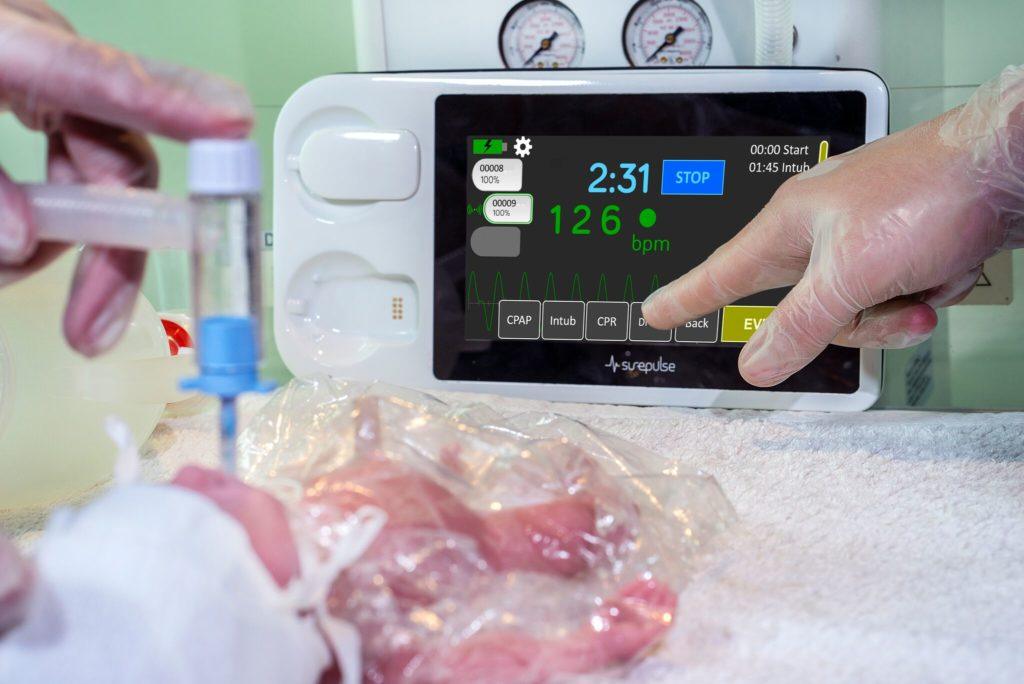
A lifesaving device developed by a University of Nottingham spin-out company has undergone clinical trials in the city.
The device developed by company SurePulse Medical will increase the life chances of new-born babies who require medical intervention in the precious first few minutes of their lives
About one in 10 babies need resuscitation or stabilisation at delivery for a variety of reasons including premature birth, trauma or their airway is blocked. That means around 400,000 babies born in Europe every year are in need of some form of resuscitation. The SurePulse VS, uses an optical sensor integrated into a cap which then display the babies heart rate on a screen to help clinicians in the ‘golden minutes’ they have to stabilise the baby – in the most critical cases it will mean babies lives will be saved from death or life-long disability.
SurePulse CEO Dr James Carpenter is an electronic engineer and formed the company with academic colleagues after studying for his PhD in medical electronics at The University of Nottingham.
Dr Carpenter said: “The stethoscope remains the standard of care, but as you can imagine listening to a tiny heart beat and doing a mental calculation to calculate the heart rate can lead to delays and errors. How you manage the baby in those first few minutes makes a big difference to their mortality and morbidity outcomes in the short and long term.”
Medics are closely monitoring the heart rate to ensure the baby is stable – the SurePulse VS will accurately guide the process and give those babies the best possible chance.
He added: “What we are trying to do is optimise treatment in the ‘golden minutes’ after birth; that time when babies are coming off the umbilical cord, their mother’s blood supply and trying to start independent life. Choosing the right intervention really makes a huge difference.
“If you get a heart rate outside of the right ranges, it can have a significant impact on things like IQ, as depleted oxygenation of the brain potentially leads to cerebral palsy and other types of brain damage.
“Giving confidence to doctors that they have the right information at the right time also gives parents confidence that their baby is being managed in the best way possible which helps to reduce stress in the delivery room”
Nottingham Technology Ventures (NTV), the organisation which manages the University of Nottingham’s interest in a portfolio of 18 spin-out companies.
Businesses which began life as research projects earned a return of more than £11 million for the University of Nottingham last year.
This is being reinvested in supporting the University’s core mission of creating a learning environment which inspires students and carrying out research which leads to transformative discovery.
These companies have developed a range of advanced products and services for industries which range from agriculture and the environment to healthcare and manufacturing.
NTV’s work in managing the portfolio means it plays an important role in helping the University nurture projects that can be commercialised to benefit the local and regional economy through jobs and financial gain, and wider society by developing products and services which address major challenges.
